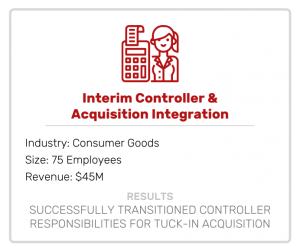
When an exiting employee is an integral part of a company’s operation, their employer may ask for a resignation period beyond the standard two weeks. If your employer asks for more than two weeks’ notice but your next opportunity has a firm start date, these steps can help you navigate the road ahead.
After submitting your resignation, your employer may express concern about finding a replacement before your last day. Some employers may even ask if you can extend your resignation period by a few additional weeks. A good way to respond to this request is to say, “since I have a start date set with my next opportunity, my last day is firm, but I am committed to providing a smooth transition of responsibilities.”
If your employer asks for more than two weeks’ notice, they may also ask for support beyond your final day. For example, your former employer or colleagues may reach out with questions about specific file locations, processes or procedures. While it is a good practice to respond to these inquiries, remember to set boundaries about your availability. Don’t feel obligated to answer immediately; instead, answer these questions in your own time and provide only the necessary information. This practice will help you preserve your professional relationship with your previous employer without burdening you with lingering responsibility.
In anticipation for submitting your two weeks’ notice, draft a transfer plan that:
This can help ease your manager’s anxieties about your departure and help them come to terms with your two-weeks’ notice. It will also help you maintain your existing relationship with your colleagues, whom you may encounter again in your career. At VIP, we offer a Role Transitioning service that creates a task-by-task roadmap for incoming resources to ensure future success. Consider recommending a similar tool to help your employer navigate the transition of responsibilities.
If you are searching for a new job because of a move or other major life change, communicate your intentions with your employer and let them know your timeframe for making a change. This gives your employer a heads up about your future departure while leaving you with flexibility for your final day. For example, you could tell your employer, “I am moving within the next six months, and wanted to give you advanced notice while I search for a new position closer to my future home.”
Many candidates feel guilty about leaving the burden of their work to their former coworkers after they’ve left. Other individuals may be concerned that the team will lack the skills needed to succeed after they’ve departed. But it is important to remember – the company will continue to conduct business without you, and you do not need to feel accountable for its future success.
The two-week resignation period is the time to show your employer professional courtesy, respect and appreciation. In turn, you as an employee should receive the same professional respect from your employer. Don’t feel obligated to extend your resignation period beyond the standard two weeks, especially if it can put your new job offer in jeopardy. Just remember, your post-resignation performance can help preserve the relationship with your manager, who can provide valuable references in the future.
Follow VIP on LinkedIn for more career advice, or view our current job opportunities here.